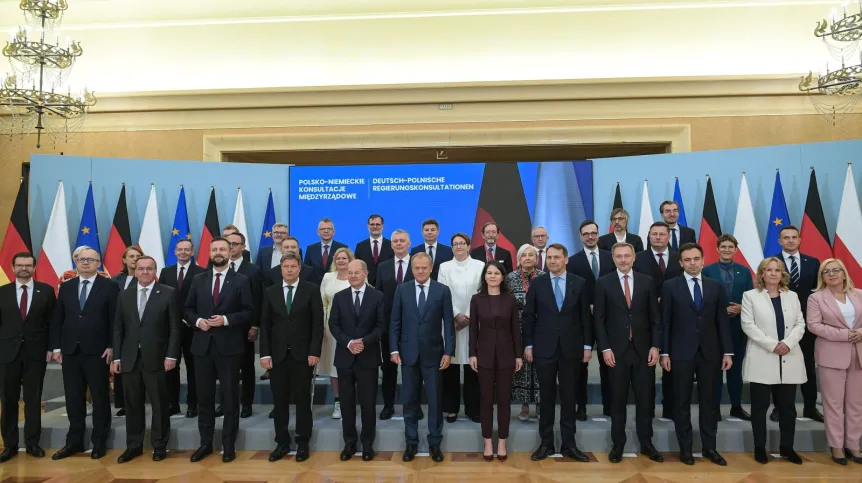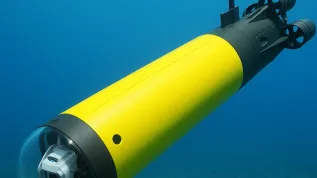
The governments of Poland and Germany want to renew their joint declaration of intention regarding bilateral and European cooperation in the field of research and development, according to the document 'Polish-German Action Plan'. It is also planned to co-finance projects related to recent history, including Russia's attack on Ukraine.
'We will actively provide support by making financial resources available for cooperation between our higher education institutions and research organizations. To this end, we will renew the 2018 Joint Declaration of Intent on bilateral and European cooperation in the field of research and development', says the 'Polish-German Action Plan'. This document was adopted by the governments of Poland and Germany after Tuesday's intergovernmental consultations in Warsaw with the participation of Prime Minister Donald Tusk and German Chancellor Olaf Scholz.
In the section on science, the will was declared for Dioscuri Centres in Poland, managed jointly by the Polish National Science Centre and the Max Planck Society, to become catalysts for strengthening European cooperation.
The 'significant role' was also recognized by the Polish-German Science Foundation as a beacon for bilateral cooperation, in particular in the area of humanities and social sciences.
'It was this thought that guided the changes we adopted in 2023, aimed primarily at providing funds for special calls for funding for projects devoted to research on Polish-German relations in the 20th and 21st centuries', the document says.
It was announced that a special invitation to submit applications for co-financing for projects on the so-called epochal change in German politics (German: Zeitenwende) was planned. This topic was proposed by the Scientific Council of the Polish-German Science Foundation. 'The scope of the research focuses on the Russian armed attack on Ukraine that has been ongoing since February 2022. This is a current topic in the face of the dramatically changing geopolitical situation, especially in Europe, and it takes into account long-term trends in the development of events, not only in the military context', the document says.
Plans include a call for applications for co-financing for projects in the field of artificial intelligence under the bilateral subsidy program 'Digitisation of the economy', implemented since 2018. 'In addition, we will check whether there are other issues that can be covered by joint calls for applications', it was announced.
The document also encourages higher education institutions and non-university research centres to strengthen cooperation at bilateral and European level. The 'significant role' of the European University Viadrina as an example of bilateral academic cooperation was also recognized, in particular Collegium Polonicum as a unique project implemented by the European University Viadrina and the Adam Mickiewicz University in Poznań.
Support for the further development of large European and international examples of research infrastructure was announced.
'We advocate that research infrastructure facilities, such as the Facility for Antiproton and Ion Research (FAIR) and the European X-ray Free Electron Laser (XFEL), continue to create optimal conditions for conducting excellent research. We pay particular attention to the FAIR facility in Darmstadt as a future reference point in Europe. We emphasise the importance of further commitments to the implementation of the unique international research infrastructure of the FAIR centre', the document continues.
It also emphasises the great importance of freedom of scientific research to guarantee the dynamic development, resilience and openness of the science system. 'Together we promote freedom of scientific research within the framework of the Year of Science 2024 - Freedom in Germany and the Polish Presidency of the EU Council in the first half of 2025, during which a conference on research, development and freedom is planned', the document adds.
It was also announced that a detailed analysis of the possibilities of involvement of Poland and Germany in helping to build a modern and durable research infrastructure in Ukraine would be carried out. 'We believe that this is our joint responsibility. Moreover, the current wave of political crises requires us to analyse how to responsibly combine the use of research conducted in the civilian and military spheres', the authors of the document say. (PAP)
PAP - Science in Poland
agt/ zan/ amac/ kap/
tr. RL













